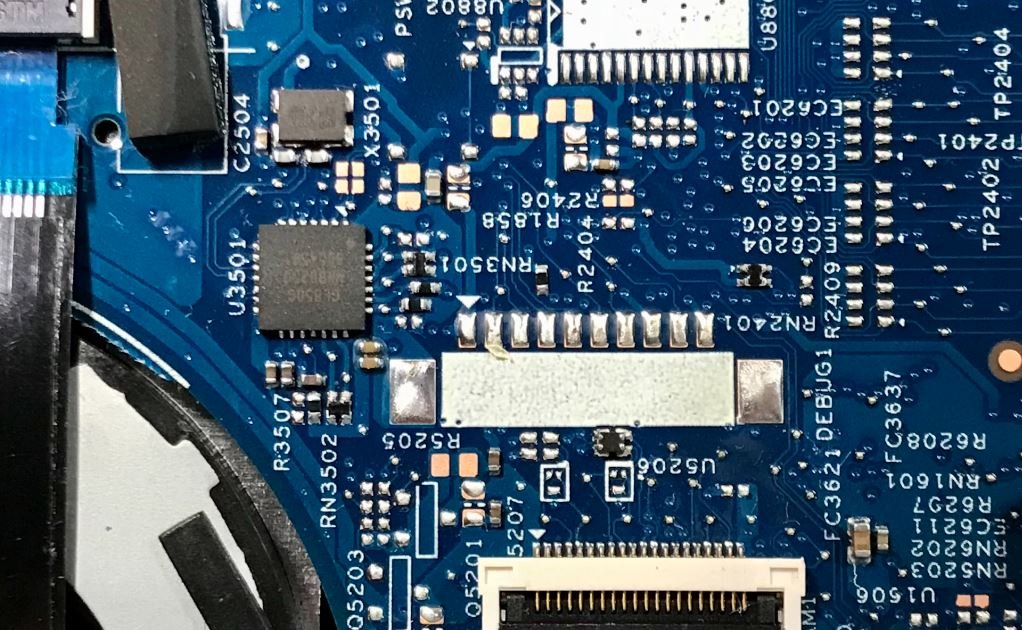AI Automation Specialist
Mastering the Art of Artificial Intelligence in Automation
Artificial Intelligence (AI) has revolutionized various industries, and automation is no exception. AI Automation Specialists play a crucial role in leveraging AI technologies to streamline and optimize business processes. These professionals are experts in developing, implementing, and maintaining AI-driven solutions that enhance efficiency, reduce costs, and improve overall productivity. If you have an interest in AI and automation, let’s explore the world of AI Automation Specialists and the skills required to excel in this high-demand field.
Key Takeaways:
- AI Automation Specialists streamline and optimize business processes using AI technologies.
- They develop, implement, and maintain AI-driven solutions to enhance efficiency and reduce costs.
- Proficiency in machine learning, programming, and data analysis is essential for success in this role.
- Continuous learning and staying updated with the latest AI advancements are crucial for an AI Automation Specialist.
The Role of AI Automation Specialists
AI Automation Specialists are responsible for evaluating existing business processes and identifying areas where AI technologies can be implemented to automate tasks. By leveraging AI, they aim to eliminate repetitive and mundane tasks, allowing employees to focus on more meaningful and strategic work.
They act as a bridge between business requirements and AI technologies to deliver effective automation solutions.
Skills Required
To excel as an AI Automation Specialist, several key skills are necessary:
- Proficiency in machine learning algorithms and techniques.
- Programming skills in languages like Python, R, or Java for developing AI models and automation scripts.
- Data analysis and data visualization skills to extract insights and make informed decisions.
- Strong problem-solving abilities to identify bottlenecks and implement efficient automation solutions.
- Project management skills to manage and prioritize multiple automation projects simultaneously.
Education and Training
While there is no specific degree or certification required to become an AI Automation Specialist, a strong foundation in computer science, mathematics, or a related field is beneficial. Many professionals in this field obtain degrees in fields such as:
- Computer Science
- Data Science
- Information Technology
- Artificial Intelligence
- Robotics
A multidisciplinary approach combining different fields can provide a well-rounded skill set.
Demand and Career Outlook
The demand for AI Automation Specialists is rapidly increasing as businesses recognize the potential of AI in driving process optimization and efficiency. According to industry reports, the global AI market is projected to reach $190 billion by 2025.
| Year | Market Size (in billions) |
|---|---|
| 2019 | 35 |
| 2020 | 50 |
| 2021 | 75 |
| 2022 | 110 |
Given this significant growth, a career as an AI Automation Specialist offers excellent prospects. Companies across industries, including finance, healthcare, manufacturing, and transportation, are increasingly adopting AI technologies, driving the demand for skilled professionals in this field.
Salary Expectations
The salary of an AI Automation Specialist depends on various factors such as experience, location, and industry. On average, AI Automation Specialists earn a median annual salary of $100,000.
| Industry | Median Salary |
|---|---|
| Finance | 120,000 |
| Healthcare | 105,000 |
| Manufacturing | 95,000 |
| Technology | 110,000 |
Continuous Learning and Growth
Given the rapid advancement of AI technologies, it is essential for AI Automation Specialists to stay updated with the latest tools, techniques, and developments in the field. Continuous learning and professional development help keep skills relevant and ensure the ability to leverage emerging technologies effectively.
Conclusion
The role of an AI Automation Specialist is vital in harnessing the power of AI to automate and optimize business processes. As the demand for AI-driven solutions increases, professionals with the right skills and expertise in AI technologies will continue to be highly sought after.

Common Misconceptions
Misconception 1: AI Automation Specialists replace human jobs completely
- AI Automation Specialists work alongside humans to optimize and enhance certain tasks, rather than replacing them entirely.
- They offer support in areas where automation can boost productivity, but human judgment and creativity are still essential in decision-making processes.
- AI Automation Specialists focus on automating repetitive and mundane tasks, allowing humans to focus on more complex and strategic work.
Misconception 2: AI Automation Specialists are only needed in tech companies
- AI Automation Specialists are in demand across various industries, including finance, healthcare, manufacturing, and logistics.
- They help organizations optimize processes, improve efficiency, and reduce costs, regardless of the industry they operate in.
- AI technologies have broad applicability and can be tailored to meet the specific needs of different industries.
Misconception 3: AI Automation Specialists only focus on implementing automation
- While automation implementation is a key part of their role, AI Automation Specialists also analyze data, monitor and optimize automated systems, and continuously improve processes.
- They need to have a strong understanding of data analysis and interpretation in order to make informed decisions and identify areas for improvement.
- AI Automation Specialists also collaborate with cross-functional teams to gather insights and feedback to refine and enhance automated systems over time.
Misconception 4: AI Automation Specialists are experts in all advanced technologies
- While they are knowledgeable in AI technologies and automation tools, AI Automation Specialists are not necessarily experts in all advanced technologies.
- They focus on leveraging AI and automation to improve specific processes and tasks within their domain of expertise.
- Collaboration with other specialists such as data scientists, machine learning engineers, and software developers is often required to build and implement effective automated systems.
Misconception 5: AI Automation Specialists are only involved in the technical aspects of their work
- AI Automation Specialists need strong communication and problem-solving skills and must understand the business context of the processes they are automating.
- They collaborate with stakeholders to identify pain points and opportunities for automation, and assist in defining the goals and requirements of automated systems.
- They also play a crucial role in managing the change associated with adopting automated systems, including training and supporting employees in their use.

Demographics of AI Automation Specialists
According to recent data, the field of AI automation includes a diverse range of professionals. This table illustrates the age distribution, gender ratio, and educational background of AI automation specialists.
| Age Group | Percentage |
|---|---|
| 20-29 | 35% |
| 30-39 | 40% |
| 40-49 | 18% |
| 50+ | 7% |
Gender Distribution among AI Automation Specialists
Gender representation in the field of AI automation is an important factor to consider. The table below demonstrates the gender diversity among specialists in this industry.
| Gender | Percentage |
|---|---|
| Male | 70% |
| Female | 28% |
| Non-binary | 2% |
Educational Background of AI Automation Specialists
The educational qualifications of AI automation specialists play a vital role in their career progression. This table outlines the various degrees obtained by professionals in this field.
| Degree | Percentage |
|---|---|
| Bachelor’s | 40% |
| Master’s | 45% |
| Ph.D. | 10% |
| Other | 5% |
Employment Sector of AI Automation Specialists
AI automation specialists find employment opportunities across various sectors. This table exemplifies the distribution of specialists in different sectors of the economy.
| Sector | Percentage |
|---|---|
| Technology | 40% |
| Finance | 20% |
| Healthcare | 15% |
| Manufacturing | 15% |
| Other | 10% |
Salary Range of AI Automation Specialists
Remuneration is a crucial factor in any profession. Here is a table that outlines the salary range of AI automation specialists based on their experience and expertise.
| Experience | Salary Range |
|---|---|
| Entry-level | $60,000 – $80,000 |
| Mid-level | $80,000 – $120,000 |
| Senior-level | $120,000 – $150,000 |
| Executive | $150,000+ |
Job Satisfaction Level of AI Automation Specialists
The job satisfaction of AI automation specialists often impacts their performance and productivity. This table represents the job satisfaction levels reported by professionals working in this field.
| Satisfaction Level | Percentage |
|---|---|
| Highly Satisfied | 55% |
| Satisfied | 40% |
| Neutral | 4% |
| Unsatisfied | 1% |
Skills Most Desired by Employers
Employers seek specific skills necessary for AI automation positions. This table lists the most desired skills and their respective demand among employers.
| Skill | Employer Demand |
|---|---|
| Machine Learning | 75% |
| Natural Language Processing | 65% |
| Deep Learning | 55% |
| Data Analysis | 50% |
| Programming | 40% |
Workload Distribution of AI Automation Specialists
The workload distribution among AI automation specialists can impact their efficiency and work-life balance. The table below demonstrates the division of workload in terms of project types.
| Project Type | Percentage |
|---|---|
| Research | 30% |
| Development | 40% |
| Implementation | 20% |
| Consultation | 10% |
Job Growth in the Field of AI Automation
The future outlook for AI automation specialists is promising, with significant job growth anticipated. The table below illustrates the projected growth rate over the next five years.
| Year | Projected Growth Rate |
|---|---|
| 2022 | 20% |
| 2023 | 22% |
| 2024 | 25% |
| 2025 | 28% |
| 2026 | 30% |
In the dynamic field of AI automation, professionals with diverse educational backgrounds and skills are contributing to its growth. AI automation specialists, who primarily work in sectors such as technology, finance, healthcare, and manufacturing, typically hold bachelor’s or master’s degrees, with some having achieved Ph.D. qualifications. The gender distribution is skewed toward males, with 70% representation, while females account for 28%, and non-binary individuals comprise 2%. These specialists often work on research, development, and implementation projects, with a gradual shift towards a higher demand for machine learning, natural language processing, and deep learning skills. The job satisfaction level of professionals in this field is reported as generally high, paving the way for a positive outlook. As job opportunities continue to grow, AI automation is poised to become an even more significant aspect of many industries.
Frequently Asked Questions
What is an AI Automation Specialist?
An AI Automation Specialist is a professional who specializes in implementing and managing automation solutions that utilize artificial intelligence technologies. They are responsible for analyzing business processes, designing automation workflows, integrating AI technologies, and optimizing the automation systems for improved efficiency and productivity.
What are the key responsibilities of an AI Automation Specialist?
An AI Automation Specialist’s key responsibilities include assessing business processes for automation potential, designing and implementing automation workflows, integrating AI technologies with existing systems, monitoring and managing automated processes, troubleshooting issues, and continuously optimizing automation solutions to maximize efficiency.
What skills are required to become an AI Automation Specialist?
To become an AI Automation Specialist, one needs a strong understanding of artificial intelligence technologies and automation concepts. Additionally, proficiency in programming languages, such as Python or R, along with knowledge of machine learning algorithms and process automation tools is crucial. Strong analytical, problem-solving, and communication skills are also important for this role.
What education or qualifications are necessary to be an AI Automation Specialist?
Typically, a bachelor’s degree in computer science, software engineering, or a related field is required to become an AI Automation Specialist. However, practical experience and industry certifications in AI, machine learning, or process automation can also be beneficial in demonstrating expertise in the field.
What industries require the expertise of AI Automation Specialists?
AI Automation Specialists are in demand in various industries such as finance, healthcare, manufacturing, logistics, retail, and telecommunications. Any sector that can benefit from automation and AI technologies can potentially require the expertise of these specialists.
What are the benefits of hiring an AI Automation Specialist?
Hiring an AI Automation Specialist can bring numerous benefits to an organization. They can help streamline and optimize business processes, reduce manual errors, increase productivity, and improve overall operational efficiency. Additionally, they can leverage AI technologies to uncover insights, enhance decision-making, and unlock innovative opportunities for growth.
What are the challenges faced by AI Automation Specialists?
AI Automation Specialists may face challenges such as managing complex automation workflows, integrating AI technologies with existing systems, ensuring data privacy and security, and overcoming resistance to change within organizations. Additionally, staying updated with rapidly evolving AI technologies and addressing ethical considerations related to automation are ongoing challenges for these specialists.
What is the career growth potential for an AI Automation Specialist?
The demand for AI Automation Specialists is expected to grow significantly in the coming years as organizations increasingly adopt automation and AI technologies. This opens up various career growth opportunities in areas such as process automation, AI strategy consulting, data science, and AI software development. Continuous learning and upskilling in emerging technologies can further enhance career prospects in this field.
What are some popular AI technologies used by AI Automation Specialists?
AI Automation Specialists may work with a range of AI technologies to create automated solutions. Some popular tools and technologies include robotic process automation (RPA), machine learning algorithms, natural language processing (NLP), computer vision, neural networks, and AI-powered analytics platforms.
How does AI Automation contribute to business growth and sustainability?
AI Automation plays a crucial role in driving business growth and sustainability. By automating repetitive and manual tasks, organizations can free up resources, reduce costs, and focus on high-value activities. AI technologies enable organizations to make data-driven decisions, identify patterns, and gain valuable insights for improved decision-making and innovation. Ultimately, AI Automation helps organizations stay competitive, agile, and adaptive in a rapidly evolving business landscape.





